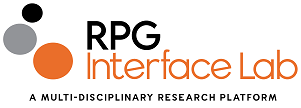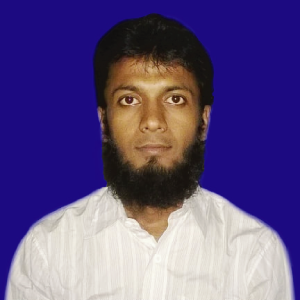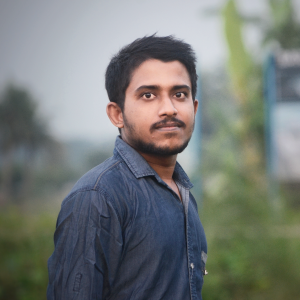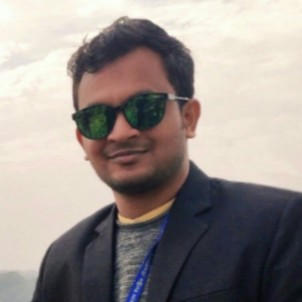Dive into the transformative world of Molecular Biology & Biotechnology at RPG Research Interface Lab, where you’ll shape the future of life sciences! This immersive program invites bachelor’s, master’s, doctoral students, professors, and scientists to engage in 1–2 month project-based research sprints that unlock the potential of molecular mechanisms and biotechnological applications. From CRISPR-based gene editing to microbial engineering for sustainable bioproducts, you’ll tackle global challenges in healthcare, agriculture, and environmental sustainability, collaborating with leading institutions like MIT (US), University of Oxford (UK), Politecnico di Torino (Italy), Jiangnan University (China), North South University (Bangladesh), and the University of Dhaka (Bangladesh).
Located in Jashore, Bangladesh, RPG Interface Lab is a non-profit epicenter of innovation, seamlessly integrating wet lab experiments (e.g., recombinant DNA technology) with dry lab analyses (e.g., genomic data mining) to drive scientific breakthroughs. Our global network, including Stanford University (US), Imperial College London (UK), University of Milan (Italy), and others, provides access to cutting-edge resources, from high-throughput sequencing to clinical trial datasets. Whether you’re a budding scientist or an experienced researcher, you’ll contribute to projects like developing precision therapeutics or bioengineered crops, with real-world impact.
Here’s the thrill: every participant is guaranteed authorship on a Scopus-indexed journal publication, and standout contributions could secure first authorship! Our projects address critical issues, such as designing novel vaccines or optimizing bioreactors for bioethanol production, with applications spanning medicine, agriculture, and green technology. With state-of-the-art wet labs equipped for molecular cloning and dry labs for bioinformatics, you’ll thrive in a collaborative, ethical, and inclusive environment that champions diversity and innovation.
“Decode life’s molecular secrets—and publish your breakthroughs in just 1–2 months!”
RPG’s mission is to build a prejudice-free global research community, prioritizing ethical, high-impact science. Our projects leverage advanced tools like real-time PCR, liquid chromatography-mass spectrometry, and bioinformatics platforms (e.g., Galaxy, CLC Genomics Workbench), alongside partnerships with hospitals and biotech industries for real-world validation. Whether you’re exploring gene regulation pathways or developing biosensors, you’ll be at the forefront of the 5th Industrial Revolution.
Get ready for a high-energy coding adventure with RPG’s Machine Learning program! Our 1–2 month projects are fast-paced, high-impact research sprints designed for bachelor’s, master’s, doctoral students, professors, and scientists. Each project begins with a 3-day intensive training bootcamp, where our expert mentors—leading AI researchers, data scientists, and computational biologists—equip you with project-specific skills. You’ll master programming in Python, R, C, and C++, learn to build machine learning models, set up computational environments, and integrate wet lab techniques, ensuring you’re ready to innovate from day one.
Our hybrid format combines on-site work at our state-of-the-art facilities in Jashore, Bangladesh, with virtual collaboration, making it accessible worldwide. You’ll team up with top universities and state key laboratories, such as MIT (US), Imperial College London (UK), University of Bologna (Italy), Zhejiang University (China), and Bangladesh University of Engineering and Technology, gaining access to advanced computational resources, clinical datasets, and real-world validation opportunities.
Program highlights include:
- Duration: 1–2 months per project, with rolling monthly intakes (e.g., June, July, August 2025) for maximum flexibility.
- Format: Hybrid—on-site dry and wet lab work in Jashore, plus virtual collaboration for global accessibility.
- Certification: Certificate of Research Completion, endorsed by RPG and its international partners, boosting your academic and professional credentials.
- Authorship Opportunity: Guaranteed authorship on a Scopus-indexed journal publication, with potential for first authorship for exceptional contributions.
- 3-Day Training Bootcamp: Hands-on training on project specifics, machine learning algorithms (e.g., GradientBoosting, RandomForest), programming in Python, R, C, C++, computational environment setup, and wet lab protocols for data validation.
- Global Collaboration: Work with researchers from top institutions in Italy, the US, UK, China, and Bangladesh, with access to clinical data and advanced computational tools.
- Research Output: Produce predictive models, datasets, or manuscripts, contributing to RPG’s goal of 6–7 high-impact publications annually.
- Mentorship: Personalized guidance from RPG’s team of AI experts, data scientists, and clinicians, fostering your growth as a researcher.
-
Each project follows a clear timeline: data preprocessing, model development, validation, and publication. In the dry lab, you’ll program in Python for machine learning pipelines, R for statistical modeling, C for performance-critical tasks, and C++ for optimized algorithms, using robust computational environments. In the wet lab, you’ll validate predictions with experiments, such as biochemical assays or serological analysis, adhering to strict safety protocols. Projects might include predicting glucose yields in bioreactors or developing AI-driven diagnostic tools, with applications in healthcare and biotechnology.
Our global network ensures your work has real-world impact. Past projects have involved collaborations with hospitals for biomarker analysis and state key laboratories for model optimization, giving you a CV that stands out. With flexible project selection, you can focus on deep learning, bioinformatics, or optimization, tailoring your research to your passions. Join us to code, collaborate, and conquer!
Our Molecular Biology & Biotechnology program is a dynamic exploration of life at the molecular level, offering 1–2 month projects that drive biotechnological innovation. From genome editing to bioprocess optimization, you’ll tackle cutting-edge topics through wet lab experiments and dry lab analyses. Mentored by experts from top institutions like Jiangnan University and North South University, you’ll produce publishable results that could redefine industries.
The 3-day training bootcamp equips you with essential skills: molecular biology theory, software installation (e.g., Biopython, Benchling, R), server access, and lab protocols. Our interdisciplinary curriculum draws on RPG’s expertise in molecular biology, biotechnology, and computational biology, aligning with global trends in life sciences.
Explore these exciting subjects:
• Genome Editing and CRISPR Technologies: Apply CRISPR-Cas9/13 for precise gene modifications, using wet lab techniques (e.g., electroporation) and dry lab tools (e.g., Benchling) for sgRNA design, with applications in disease treatment or crop improvement.
• Synthetic Biology and Metabolic Engineering: Construct synthetic pathways in microbes for bioproduct synthesis (e.g., biofuels, biologics), combining wet lab cloning with computational pathway modeling using tools like Pathway Tools.
• Functional Genomics and Epigenetics: Investigate gene regulation using RNA-seq or ChIP-seq, integrating wet lab nucleic acid extraction with dry lab analysis (e.g., Biopython, DESeq2) for insights into cancer or development.
• Industrial Biotechnology and Bioprocessing: Optimize bioreactors for bioproduct production (e.g., enzymes, antibiotics), using wet lab fermentation and dry lab simulations (e.g., COPASI) to enhance yield and scalability.
• Protein Engineering and Biotherapeutics: Design therapeutic proteins or antibodies, using wet lab expression systems and computational tools (e.g., Rosetta, AlphaFold) for structure-guided optimization.
• Bioinformatics and Multi-Omics Integration: Analyze genomic, transcriptomic, and proteomic datasets using R or Python-based pipelines, validated with wet lab techniques like qPCR or mass spectrometry for biomarker discovery.
• Nanobiotechnology and Biosensors: Develop nanoscale biosensors for diagnostics, using wet lab conjugation chemistry and dry lab simulations for sensor performance, with applications in point-of-care testing.
• Ethical and Regulatory Biotechnology: Master ethical and regulatory frameworks for biotech innovations, ensuring compliance with global standards like WHO or GMO regulations.
Each project is an opportunity to make a mark! You might develop a novel gene therapy, engineer microbes for plastic degradation, or uncover epigenetic biomarkers for disease. With guaranteed authorship and potential for first authorship, your work will reach global audiences via Scopus-indexed journals. Collaborations with institutions like MIT, Oxford, and Jiangnan University ensure your research is cutting-edge.
In the wet lab, you’ll use advanced equipment like thermocyclers, flow cytometers, and LC-MS systems, adhering to international biosafety standards. In the dry lab, you’ll leverage tools like Biopython for sequence analysis or Galaxy for omics workflows, with access to high-performance servers. The 3-day training ensures proficiency, making every project a bold step toward discovery.
Ready to lead the biotech revolution at RPG Interface Lab? Our Molecular Biology & Biotechnology program welcomes bachelor’s, master’s, doctoral students, professors, and scientists passionate about molecular innovation. We seek curious, driven individuals ready to dive into 1–2 month projects with global impact. Our inclusive approach embraces diverse backgrounds, with comprehensive training to bridge skill gaps.
To ensure you’re prepared for our interdisciplinary projects, here are the requirements:
• Academic Background: A bachelor’s degree (or higher) in molecular biology, biotechnology, biochemistry, genetics, bioinformatics, or related fields. Professors and scientists from diverse disciplines are encouraged to contribute expertise.
• Minimum GPA: 3.0/4.0 or equivalent (international qualifications assessed for equivalency). Passion and potential outweigh strict academic thresholds.
• Prerequisites: Basic knowledge in one of the following: molecular biology (e.g., PCR, cloning), biotechnology (e.g., fermentation), or computational skills (e.g., Python, R). The 3-day training bootcamp addresses any gaps.
• Language Proficiency: Strong English proficiency is essential for global collaboration. A TOEFL iBT score of 80 or IELTS score of 6.0 is preferred but not mandatory—clear communication of ideas is key.
• Application Materials:
• Detailed CV: A comprehensive CV highlighting academic achievements, research projects, publications, technical skills (e.g., qPCR, bioinformatics, Python), and relevant experience. Showcase your passion for biotechnology!
• Statement of Purpose (SOP): A 500–800 word SOP detailing your research interests, career goals, and motivation for joining RPG’s program. Explain how you’ll contribute and what excites you about molecular biology and biotechnology.
• Preferred Skills: Familiarity with molecular techniques (e.g., CRISPR, gel electrophoresis) or bioinformatics tools (e.g., Biopython, R) is advantageous but not required. The 3-day bootcamp covers software, servers, and lab protocols.
• Commitment to Ethics: Dedication to ethical research, aligning with RPG’s values of equity, cooperation, and excellence. Training includes ethical frameworks for biotechnology.
The 3-day training bootcamp is your launchpad, covering project-specific theory, software setup (e.g., Biopython, Benchling, R), server access, and wet lab techniques. Whether you’re cloning genes or analyzing transcriptomes, you’ll be poised for success. With rolling monthly intakes, join when it suits you—contact rpg.info03@gmail.com to discuss eligibility or project interests.
Our program empowers everyone, from undergraduates to seasoned scientists, to collaborate with global leaders and publish transformative research. Whether you’re advancing gene therapies or developing sustainable bioproducts, RPG is your platform to excel.
COURSE TUTORS
To join with the 1000+ Students and researchers enjoying RPG Interface Lab
Submit your queries to get expert opinions





